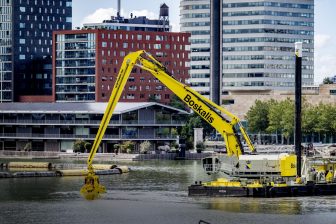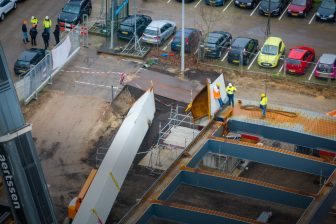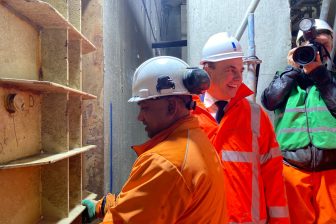EBRD adopts new strategy for Bosnia and Herzegovina
EBRD’s Board recently approved the Bank’s new Strategy for Bosnia and Herzegovina
London, United Kingdom – The Bank has met the operational objectives set out in the last strategy adopted two years ago, and in 2006 was the largest lender in Bosnia and Herzegovina for the third year in a row. With eight new projects and €137 million worth of investments, 2006 became a record year in terms of commitments in the country.
EBRD will continue to support the efforts of the Bosnia and Herzegovina authorities in the country’s transition process and in the coming period will focus its activities on the following sectors:
- In the infrastructure sector, the Bank will assist the country in upgrading its core road network, including the most important transport artery, Pan European Corridor VC. In addition to financing new projects in the railway, aviation and municipal infrastructure sectors, the focus will be on the implementation of ongoing projects and institutional reform;
- In the energy sector, the emphasis will be given to commercialisation, and in particular encouraging and financing private operations in electricity generation and distribution, in parallel with promotion of renewable energy in accordance with best international practices;
- The EBRD will build on its previous success in the financial sector and continue to support micro, small and medium-sized enterprises through the local banking sector and non-bank microfinance institutions. In addition, the Bank will seek to diversify its support by considering mortgage lending, leasing, insurance and additional equity investments;
- In the enterprise sector the Bank will continue its support to strategic foreign investors and will support large enterprise privatizations. Through the EBRD-Italy Western Balkans Local Enterprise facility, the Bank will also seek to support smaller, fast-growing local companies through debt and equity finance, and focus on the industrial, property and tourism, wood processing and agribusiness sectors.
In its latest strategy, the EBRD concludes that Bosnia and Herzegovina has continued to play a constructive role in regional cooperation, which is an essential part of the process of EU approximation. The economy has continued to show robust growth and increasing dynamism in the private sector, within a generally stable macroeconomic environment. Economic growth in recent years has remained steady at around 5-6 percent per year and the economy has the potential to grow at similar rates over the medium term.
The Bank notes that despite the overall improved climate, the country still faces major structural and institutional reform challenges, without which further progress towards a more democratic and efficient state, economic prosperity and EU approximation will be difficult to achieve. The EBRD will continue to engage in a policy dialogue with the Bosnia and Herzegovina authorities with respect to further institutional reform.
As of 31 July 2007 the Bank’s commitments in Bosnia and Herzegovina have reached a total of €685 million. An additional €905 million have been mobilised from other sources.
Public sector projects in 2006 and up to end-July 2007 include power distribution, civil aviation and road rehabilitation projects in the amount of €142 million, and the first municipal infrastructure project in Bosnia and Herzegovina amounting to €7 million for construction of the wastewater collection system. In addition, the Bank signed eight private sector projects in the amount of €71 million, including six projects in the financial sector and one each in agribusiness and manufacturing sectors.
U las zojuist één van de gratis premium artikelen
Onbeperkt lezen? Profiteer nu van de introductieaanbieding voor € 10,- per maand.
Bent u al abonnee?



